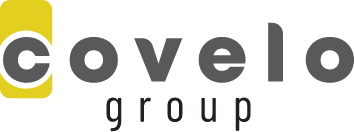- September 20, 2023
- Posted by: Covelo Group
- Category: Uncategorized

Telehealth is transforming healthcare delivery. This technology allows for continuous patient care while promoting proper self-care and helping with diagnosing. It enables providers to treat more patients, reduce the length of visits, and ultimately reduce the size of hospitals. This technology reduces the number of emergency room visits and enables experts to collaborate on cases in rural hospitals.
Four skills to help you master telehealth.
Virtual Patient Consultations
In allied health care, most consultations are possible via a telemedicine platform. Some visits do require a physical examination, but many do not. There are benefits for both providers and patients:
· No transportation costs
· Care on-demand
· Access to more specialists
· Less exposure to illness
· Better control of chronic illness
Virtual consultations enable healthcare providers to enhance safe and effective care delivery.
Remote Monitoring
Telehealth and remote monitoring work well for disease processes such as high blood pressure, diabetes, weight loss, heart conditions, chronic obstructive pulmonary disease, sleep apnea, and asthma. This technology monitors patients’ vital signs and health metrics in real-time. Remote monitoring provides insights into patients’ overall health.
With remote monitoring, providers can track the progress of patients with chronic conditions and personalize treatment plans for these patients. It provides the detection of complications early on, allowing for timely interventions. Reminders, alerts, and real-time feedback help to improve patient adherence.
Telemedicine Technology Advancements
The technological advancements of telehealth will enable it to evolve into something easier to use. Now that healthcare professionals understand how telehealth can revolutionize healthcare, the technology will improve to expand the number of people who use telehealth.
As technology expands its reach, it is also moving toward aggregated, all-in-one technology. Joint ventures between technology and healthcare professionals will help to create more seamless technology.
Telehealth technology is increasingly managing chronic illness. Health care now sees more wearable technology, sensors, chat boxes, and symptom-management tools to help this disease management. Managing chronic disease via telehealth advancements is expected to lower healthcare costs, morbidity, and mortality.
The Skills Needed to Excel
Telehealth is forcing healthcare professionals to think digitally and gain skills to operate effectively in the telehealth sector. Here are essential skills for telehealth:
· Technology skills. Healthcare professionals must learn the relevant technology to treat their patients virtually. This technology is constantly changing.
· Communication skills. Inpatient visits allow practitioners to perceive body language, which communicates more than words. Communication skills are vital for telehealth, and practitioners must rely heavily on patients’ comments.
· Empathy. Lacking physical intimacy, healthcare professionals must create a rapport with patients by asking questions and reaffirming them. They must maintain professionalism and ensure that virtual appointments are patient-focused.
· Coaching skills. Healthcare professionals might need coaching skills to instruct their patients properly.
Covelo Group can help you reach your full potential.
There are opportunities in nursing, allied health, non-clinical and educational services. The experienced recruiters at Covelo Group can connect you with in-demand jobs at top hospitals and clinics nationwide.

